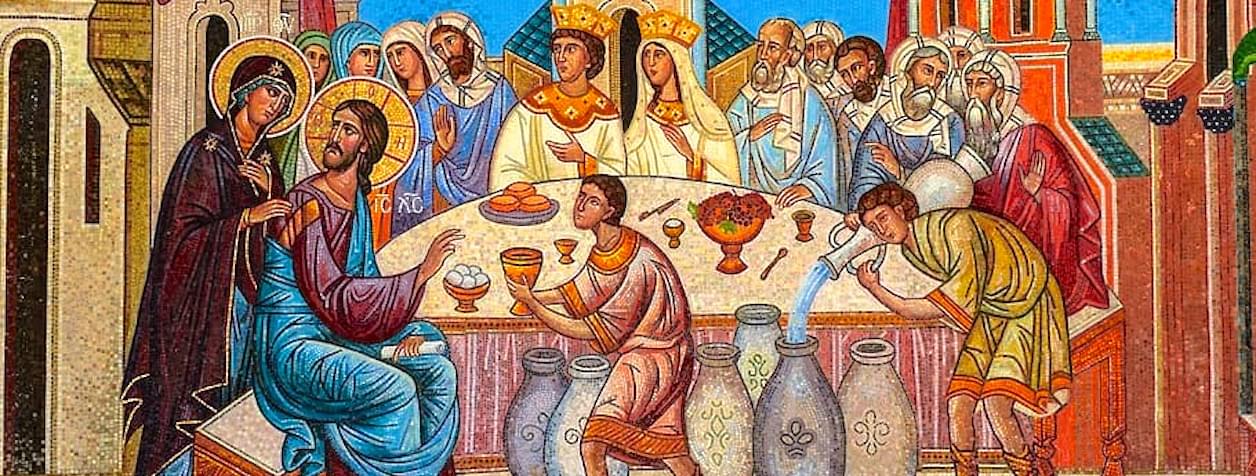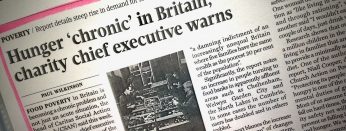Our vision
Centred on Christ, inspired by Catholic Social Teaching, our vision for the nations of England and Wales is of a civilization of love, solidarity and justice, where the dignity of every human being is respected and upheld; where every person can flourish and live in peace and freedom as part of one human family; where there is no exclusion, discrimination, or dehumanising poverty; where the voices of the women, men and children in the most vulnerable situations are listened to, discerned, and inform action; where everyone is encouraged to contribute to the common good.
Our mission
Caritas Social Action Network shares in the mission of the Catholic Church, committed to tackling the causes of poverty, promoting justice and restoring dignity, specifically by convening and animating alliances of member charities involved in the social mission of the Church, leading on the formation of those involved in social action, and raising a prophetic Catholic voice in the public arena.
Our values
These values, derived from the permanent principles of the Church’s social doctrine, inform the policy and practices of our trustees and workers.
The dignity of the human person, in particular the preferential option for the poor. “A just society can become a reality only when it is based on the respect of the transcendent dignity of the human person” (Compendium of the Social Doctrine of the Church, 132). “Those who are oppressed by poverty are the object of a preferential love on the part of the Church which, since her origin and in spite of the failings of many of her members, has not ceased to work for their relief, defence and liberation, through numerous works of charity which remain indispensable always and everywhere” (Catechism of the Catholic Church, 2448).
The Common Good, which indicates “the sum total of social conditions which allow people, either as groups or individuals, to reach their fulfilment more fully and more easily” (Gaudium et Spes, 26). “A society that wishes and intends to remain at the service of the human being at every level is a society that has the common good – the good of all people and of the whole person – as its primary goal” (Compendium, 165). The human person finds fulfilment in the fact that they exist “with” and “for” others.
Subsidiarity. “The principle of subsidiarity protects people from abuses by higher-level social authority and calls on these same authorities to help individuals and intermediate groups to fulfil their duties. This principle is imperative because every person, family and intermediate group has something original to offer to the community” (Compendium, 187).
Solidarity is a firm and persevering determination to commit oneself to the common good, since we are all responsible for all. It is found in “a commitment to the good of one’s neighbour with the readiness, in the Gospel sense, to ‘lose oneself’ for the sake of the other instead of exploiting them, and to ‘serve him’ instead of oppressing him for one’s own advantage” (Compendium, 193).
Structure
Caritas Social Action Network is an agency of the Catholic Bishops’ Conference of England and Wales, a registered charity and a company limited by guarantee. The Bishops’ Conference appoints a Bishop as the Chair of Trustees, appoints two other episcopal Trustees and approves other Trustee appointments.
We are a national member of the Caritas Internationalis confederation within the Caritas Europa group.
England and Wales have two distinct Caritas national members: the Catholic Agency for Overseas Development (CAFOD), and CSAN for domestic social action.
Caritas Social Action Network is registered in England and Wales as a charity (number 1101431) and a company limited by guarantee and not having a share capital (number 4505111). Network member organisations have their own trustees and governance.
History
Caritas Social Action Network (CSAN) was launched in March 2003 to help raise the profile and voice of Catholics involved in social justice. CSAN was a new organisation which incorporated the functions of three former social welfare bodies of the Catholic Bishops’ Conference of England and Wales:
The Social Welfare Committee was established in 1984, when a new committee structure replaced a former system of commissions. It was one of several committees in the Department of Christian Responsibility and Citizenship. Its purpose was to advise the bishops on matters concerning social welfare and social policy, and to assist dioceses and parishes by providing advice on the pastoral care of people and groups with particular needs. Following the establishment of CASC (see below), however, the Social Welfare Committee focused more upon pastoral concerns, leaving social policy matters more to CASC.
The Social Welfare Committee produced several reports and publications on a range of themes including the pastoral care of offenders and people with a homosexual orientation, dementia and spirituality, volunteers and substance misuse.
The Catholic Agency for Social Concern was set up as a new agency of the Catholic Bishops’ Conference of England and Wales in 1995. CASC’s role was to support a wide range of Catholic caring organisations and networks by providing opportunities for collaboration, facilitating the sharing of information on best practice on issues such funding, staffing, training, monitoring and evaluation and raising awareness of social justice issues.
CASC produced a number of publications relating to social care policy and on social justice issues. In 1999, CASC released an influential report entitled ‘Women in Prison’ which made a significant contribution to the establishment of the ecumenical criminal justice network, the Churches’ Criminal Justice Forum. The report drew attention to moral questions over the imprisonment of women and on care for children of female offenders. In 2000, CASC and the Social Welfare Committee issued a joint report on the extent of Catholic involvement in community care for vulnerable and marginalised people in the wider community.
The Catholic Child Welfare Council was an umbrella body for Catholic Children’s Societies, other diocesan welfare agencies, and some religious congregations that provided social care services for children and families in England and Wales. It was an agency of the Bishops’ Conference of England and Wales, though it also had links with the parallel Catholic children’s agencies in Scotland and Northern Ireland. The CCWC enabled the agencies to pool expertise, identify national needs and take appropriate action, often jointly, and to offer assistance through advice, guidance and training in order to encourage high standards of professional practice. Its origins were in 19th century “rescue societies”. It took on a more formal role in the 1970s when a Child Care Secretary was needed to liaise with Government following the 1969 Children and Young Person’s Act which produced a major reorganisation in residential child care provision by the introduction of the Community Homes system. Many of the diocesan Children’s Societies were also adoption agencies and became highly regarded in this field.
CCWC was at the forefront of early work with former child migrants in the mid-1990s. It contributed to two Australian state/government inquiries and the British government inquiry into the welfare of former child migrants, and in response to the Inquiry’s recommendations CCWC established its Australian Child Migrant Project which offered family tracing, counselling and reunification services.
The functions of these three bodies were amalgamated to enable the Church to have a greater impact in public discourse and policy on social care. CSAN’s first Director, Sarah Lindsell (formerly Director of CASC), said at the time of the launch that amalgamation of the three agencies was ‘born of the need for the Church to make a stronger impact and to have a national presence in a more structured and strategic way’. With the establishment of CSAN also came a new international dimension. Like CAFOD, CSAN became a formal member of Caritas Internationalis, the worldwide confederation of Catholic relief, development and social welfare organisations, and began liaising with Caritas Europa, the European network of members of Caritas Internationalis.
Picture credit: The Marriage at Cana – Regiane Tosatti from Pexels






You must be logged in to post a comment.